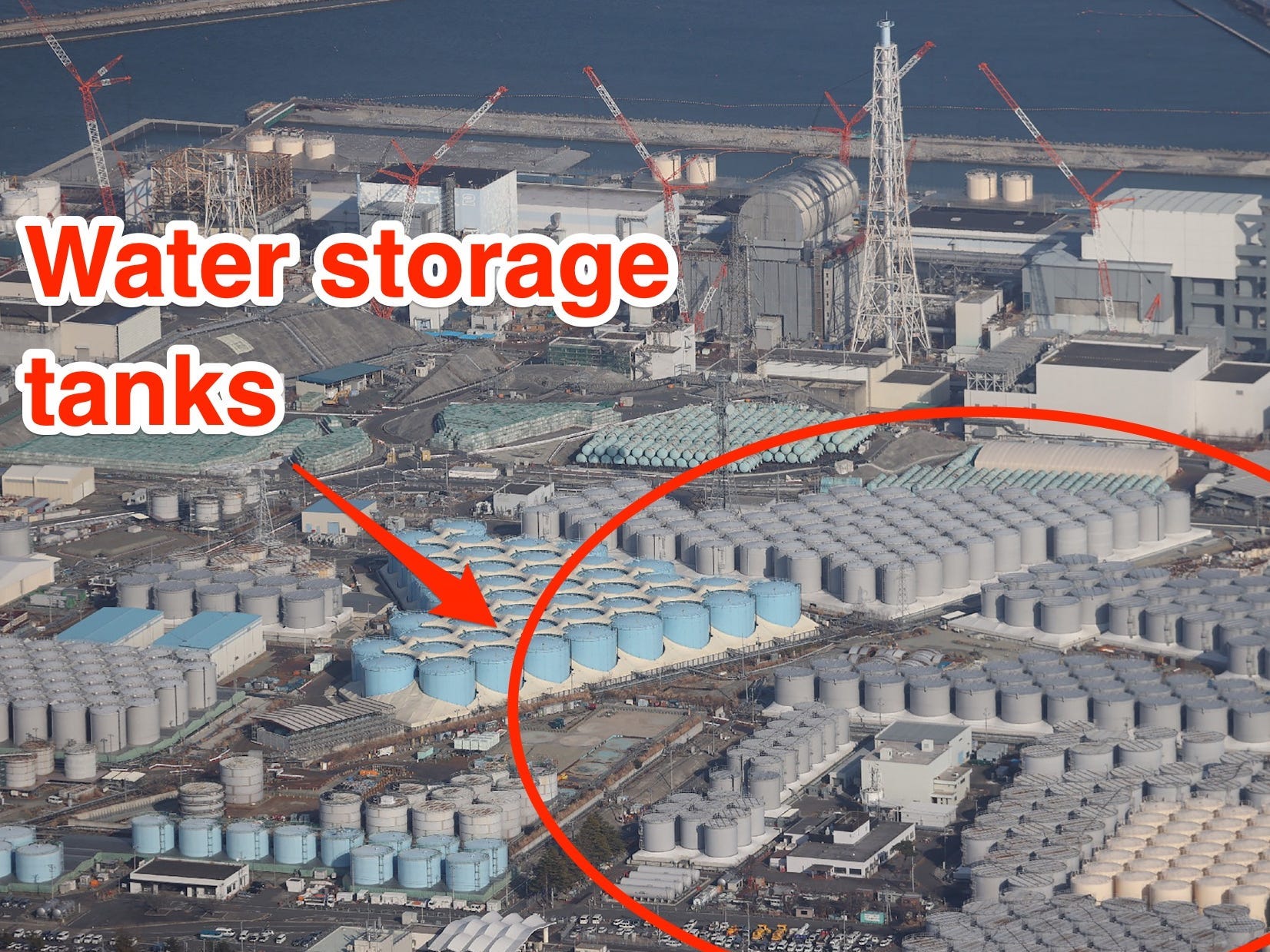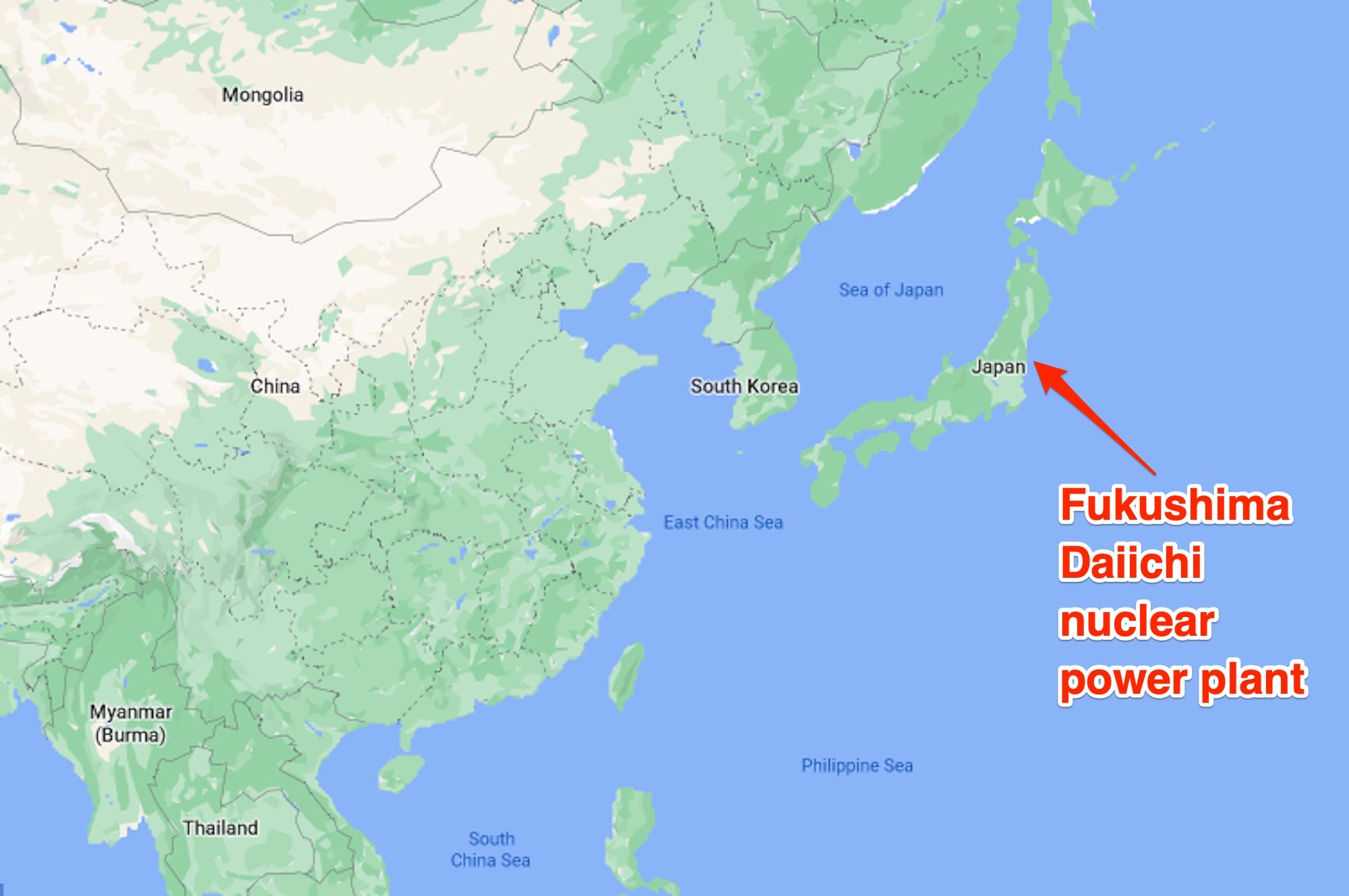
Insider/STR/JIJI PRESS/AFP via Getty Images
- Japan approved a plan to put wastewater from the Fukushima nuclear power plant into the sea.
- The water has been treated, and now experts say it contains minimal radioactive material.
- The release, set for 2023, is the latest move to deal with the aftermath of the 2011 accident there.
- See more stories on Insider's business page.
Wastewater used to cool the Fukushima nuclear reactor is due to be released into the ocean after treatment, Japan said on Tuesday.
It is part of the nation's plan to decommission the power station that was destroyed in the 2011 tsunami in one of the worst nuclear disasters in history.
Japan had previously warned that it was running out of space to contain the more than 1 million tonnes of treated contaminated water in storage tanks on site.
Releasing the water in the ocean is an "unavoidable task," Prime Minister Yoshihide Suga said. The water will start to be released in two years, according to the plan.
The will first water be filtered to remove most nuclear contaminants. However, one nuclear product cannot be removed from the wastewater: tritium, a form of hydrogen.
Releasing the treated wastewater in the ocean would dilute this particle well below standards set by the World Health Organisation, government spokesman Katsunobu Kato said.
According to the US Nuclear Regulatory Commission, tritium is fairly harmless in small concentrations, but as the concentration of the particle increases, so does the risk of cancer.
"The Japanese Government's decision is in line with practice globally, even though the large amount of water at the Fukushima plant makes it a unique and complex case," International Atomic Energy Agency's (IAEA) said in a statement on Tuesday.
The IAEA, an independent international organisation which provides technical support for nuclear safety and has been advising the Japanese government, said that controlled water release is "routinely used by operating nuclear power plants in the world."
The news was admonished by China and South Korea. In a statement issued Tuesday, the Chinese Foreign ministry called the decision "unilateral" and "highly irresponsible," claiming that it will "severely affect human health."

Insider/Google Maps
South Korea has also condemned the decision, calling it "outright unacceptable" in a press briefing on Tuesday, the Korea Herald reported.
Fisheries have also called out the decision, saying that it might further damage the image of the quality of fish caught in the Fukushima area. Local fisheries have just returned to their functions after a decade of only catching fish for testing purposes, the Association Press reported.
The US seemed to welcome the move. In a statement, the US department of State said that Japan "appears to have adopted an approach in accordance with globally accepted nuclear safety standards."
"We thank Japan for its transparent efforts in its decision," Secretary of State Antony Blinken said in a tweet.
-Secretary Antony Blinken (@SecBlinken) April 13, 2021
Dit artikel is oorspronkelijk verschenen op z24.nl